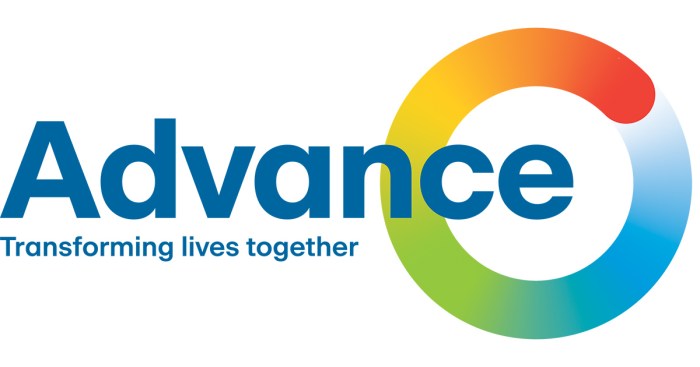How to climb up your career ladder faster than others in a big corporate? This guide unveils the strategies and insights to accelerate your professional growth. We’ll explore identifying promising career paths, mastering essential skills, crafting a compelling personal brand, networking strategically, managing performance proactively, and leveraging corporate initiatives. Get ready to navigate the corporate jungle with precision and purpose.
This comprehensive guide will detail various career paths within a large corporation, highlighting opportunities for rapid advancement. We’ll analyze key performance indicators (KPIs) associated with career progression, comparing and contrasting departments with high potential. Understanding networking dynamics and building strong relationships will be emphasized. A detailed table outlining different career ladders, including typical roles, required skills, and timeframes, will provide a clear roadmap.
Identifying Opportunities for Advancement
Climbing the corporate ladder in a large organization requires more than just hard work; it demands strategic planning and understanding of the internal landscape. This section delves into identifying opportunities for advancement by exploring various career paths, key performance indicators, department-specific potential, and the crucial role of networking. A well-informed approach, coupled with proactive networking, can significantly accelerate your career trajectory.Understanding the intricate web of career paths within a large corporation is essential for strategic advancement.
Different departments often present unique opportunities for growth, and recognizing these distinctions can help you tailor your career goals accordingly. Moreover, focusing on KPIs relevant to your desired path ensures that your efforts align with the company’s expectations and criteria for promotion.
Career Paths and Rapid Advancement
Various career paths within a large corporation offer opportunities for rapid advancement. These range from specialized technical roles in engineering or data science to leadership positions in management or executive roles. Specific departments, such as sales, product development, or finance, frequently feature accelerated growth tracks.
Key Performance Indicators (KPIs) for Career Progression
Demonstrating exceptional performance is crucial for career advancement. KPIs vary depending on the role and department, but common indicators include exceeding sales targets, successfully launching new products, achieving significant cost savings, or consistently exceeding performance benchmarks. Exceptional performance consistently recognized and rewarded by the organization is often a key factor in career advancement. Furthermore, contributions to team projects and mentorship of junior colleagues are also valuable KPIs that demonstrate leadership potential.
Departmental Differences in Advancement Potential
Different departments within a corporation possess varying degrees of potential for rapid advancement. Departments focused on innovation, like product development or research and development, frequently offer faster tracks to senior positions due to the rapid evolution of their fields. Finance and sales departments also provide opportunities for quick promotion if performance metrics are met. Conversely, support departments might have slower advancement structures, but opportunities for specialization and expertise development are still present.
However, consistent high performance across departments can be a pathway to faster advancement.
Networking for Career Advancement, How to climb up your career ladder faster than others in a big corporate
Building strong relationships across different levels of the organization is paramount for career advancement. Networking facilitates the sharing of knowledge, insights, and opportunities. Proactively engaging with colleagues, superiors, and even individuals in other departments fosters a broader understanding of the company’s operations and facilitates visibility. Building rapport with senior management through appropriate channels is also crucial.
Career Ladders Within the Corporation
This table Artikels various career ladders within the corporation, highlighting typical roles, required skills, and approximate timeframes for advancement. Note that these are estimations, and actual timelines can vary depending on individual performance and opportunities.
| Career Ladder | Typical Roles | Required Skills | Typical Timeframe for Advancement |
|---|---|---|---|
| Sales Representative | Sales Associate, Sales Manager, Regional Sales Manager | Strong communication, negotiation, and sales skills; product knowledge | 2-5 years |
| Product Development Engineer | Junior Engineer, Senior Engineer, Principal Engineer | Technical expertise, problem-solving skills, project management skills | 3-7 years |
| Finance Analyst | Junior Analyst, Senior Analyst, Financial Manager | Strong analytical skills, financial modeling skills, accounting knowledge | 3-5 years |
| Human Resources Generalist | HR Generalist, HR Specialist, HR Manager | Excellent communication, interpersonal skills, knowledge of HR policies and procedures | 3-6 years |
| Management Consultant | Consultant, Senior Consultant, Principal Consultant | Problem-solving, analytical, and presentation skills; industry knowledge | 4-8 years |
Mastering Essential Skills for Quick Progression
Climbing the corporate ladder isn’t just about identifying opportunities; it’s about mastering the skills needed to excel in each role. This requires a blend of technical proficiency, interpersonal abilities, and a continuous commitment to learning. Effective communication, leadership, and teamwork are crucial for navigating the complexities of a corporate environment and achieving rapid advancement.Understanding the specific skills required for different levels within a company allows for targeted development and a clear path forward.
This targeted approach, coupled with a proactive learning mindset, is essential for accelerating your career trajectory.
Leadership Skills
Leadership is not solely about holding a managerial title. It’s about influencing others, motivating teams, and driving positive change. Effective leaders inspire confidence, encourage collaboration, and create a supportive work environment. Developing strong communication skills, active listening, and conflict resolution techniques are critical components of leadership. Strong leadership is vital for guiding projects, mentoring colleagues, and ultimately, driving the company’s success.
Communication Skills
Clear and concise communication is essential at all levels of a company. The ability to articulate ideas effectively, both verbally and in writing, is crucial for conveying information, persuading stakeholders, and building strong relationships. Active listening is just as important as clear speaking, allowing for understanding and addressing concerns. Adapting communication styles to different audiences and situations further enhances impact and rapport.
Teamwork Skills
Collaboration and teamwork are fundamental to success in a corporate setting. Effective teamwork requires strong interpersonal skills, mutual respect, and a willingness to work towards common goals. The ability to contribute constructively, resolve conflicts within a team, and support colleagues is essential for achieving high-performance results. Successful teamwork often leads to innovative solutions and increased productivity.
Hard Skills for Different Roles
| Role | Essential Hard Skills |
|---|---|
| Entry-Level | Proficiency in core software applications (e.g., Microsoft Office Suite), basic data analysis, and effective time management. |
| Mid-Level | Advanced technical skills relevant to the specific department, project management expertise, and ability to lead small teams. |
| Senior-Level | Strategic thinking, data interpretation, leadership of large-scale projects, and the ability to make high-stakes decisions. |
The table above illustrates a general comparison. Specific hard skills will vary based on the industry, company, and specific role.
Continuous Learning and Skill Development
In today’s fast-paced corporate environment, continuous learning is paramount. Staying abreast of industry trends, acquiring new technologies, and honing existing skills are vital for advancement. Formal training programs, online courses, and industry conferences can all contribute to ongoing professional development.
Want to rocket up the corporate ladder? Beyond the usual hustle, consider this: sometimes, focusing on financial stability can be a key ingredient. For example, avoiding common pitfalls like those detailed in this helpful guide on 7 mistakes millennials make when purchasing a home can free up mental space and resources, allowing you to dedicate more time and energy to your career goals.
Ultimately, a solid financial foundation can pave the way for quicker career advancement.
Practical Strategies for Mastering Critical Skills
Developing essential skills requires a strategic approach. Identify areas for improvement and create a personalized development plan. Seek feedback from mentors, colleagues, and supervisors. Practice new skills in a low-stakes environment before applying them in critical situations. Embrace challenges as opportunities for growth and learning.
Set realistic goals and track your progress.
Resources for Skill Development
- Books: “Good to Great” by Jim Collins, “The 7 Habits of Highly Effective People” by Stephen Covey, “Crucial Conversations” by Kerry Patterson, Joseph Grenny, Ron McMillan, Al Switzler
- Online Courses: Coursera, edX, LinkedIn Learning, Udemy offer a wide range of courses covering communication, leadership, project management, and other relevant skills.
- Articles: Harvard Business Review, Forbes, and other reputable business publications provide insightful articles on various aspects of leadership, communication, and teamwork.
Crafting a Compelling Career Narrative
Climbing the corporate ladder isn’t just about skills and experience; it’s about effectively communicating your value proposition. A compelling career narrative acts as your personal brand, showcasing your achievements, aspirations, and unique contributions. This narrative is not a static document but a dynamic tool, adaptable to different job opportunities and leadership roles. Crafting a strong online presence amplifies this narrative, making you more visible and attractive to potential employers and mentors.A well-defined career narrative is essential for success in a competitive corporate environment.
It goes beyond simply listing job titles and responsibilities. It highlights your unique strengths, career trajectory, and future goals. By aligning your narrative with specific roles and opportunities, you demonstrate a clear understanding of the company’s needs and your ability to contribute. This approach differentiates you from other candidates, positioning you as a valuable asset.
So, you want to rocket up the corporate ladder? One key is focusing on proactive problem-solving and anticipating needs before they arise. But sometimes, feeling sluggish or lacking energy can hinder your drive. Interestingly, a surprising element of boosting your overall well-being, and consequently your career momentum, could be addressing underlying health issues. For example, dealing with candida overgrowth can dramatically impact your energy levels and mental clarity.
Learning how to get rid of candida overgrowth here could unlock a whole new level of focus and drive, helping you climb those corporate stairs faster and more efficiently. This proactive approach, focusing on both internal and external factors, will ultimately help you achieve your career goals.
Crafting Your Personal Brand
Your personal brand is the unique combination of skills, experiences, and values that define you professionally. It’s how you present yourself to the world and how others perceive your abilities. A strong personal brand highlights key achievements, demonstrates your skills, and communicates your aspirations for future growth. A consistent and compelling narrative across various platforms creates a powerful impression.
Tailoring Your Narrative
Adapting your career narrative to different job opportunities and leadership roles is crucial. Consider the specific requirements and expectations of each position. Highlight the skills and experiences that directly align with the job description. Quantify your achievements whenever possible to demonstrate the impact you’ve had. For example, instead of saying “Improved team efficiency,” quantify it by stating “Improved team efficiency by 15% through streamlined processes.”
Building a Strong Online Presence
A robust online presence is an integral part of a compelling career narrative. LinkedIn, a professional networking platform, is essential for showcasing your expertise, connecting with industry professionals, and demonstrating your professional network. A personal website, if applicable, can serve as a central hub for your portfolio, showcasing projects, publications, and thought leadership. Maintaining an active and professional online persona enhances your visibility and credibility.
Examples of Successful Personal Brand Statements
| Personal Brand Statement | Key Skills & Accomplishments |
|---|---|
| “Results-oriented project manager with a proven track record of successfully delivering complex projects within budget and timeline. Expertise in Agile methodologies and cross-functional collaboration.” | Project Management, Agile, Budget Management, Time Management, Cross-Functional Collaboration |
| “Innovative marketing professional with a passion for developing creative campaigns that drive measurable results. Expertise in digital marketing, content creation, and social media engagement.” | Digital Marketing, Content Creation, Social Media Marketing, Measurable Results |
| “Strategic leader with experience in driving organizational change and fostering high-performing teams. Proven ability to develop and implement innovative solutions to improve efficiency and productivity.” | Leadership, Strategic Thinking, Organizational Change Management, Team Building, Productivity Improvement |
Communication Strategies for Senior Management and Mentors
Effective communication is crucial for showcasing your value to senior management and potential mentors. Articulate your aspirations and career goals clearly and concisely. Highlight your contributions and the positive impact you’ve made. Focus on the value you bring to the organization and how your skills align with their needs. Actively seek opportunities to network and demonstrate your knowledge and passion.
Climbing the corporate ladder faster often involves more than just hard work. Think strategically, like choosing the right projects to showcase your skills. Networking is key, and don’t underestimate the power of a thoughtful gift, like the ones in this list of top 10 gift ideas for gamers , to foster connections. Ultimately, demonstrating initiative and a proactive approach, coupled with a strong understanding of company goals, will help you stand out from the crowd and advance your career quicker than others in a large corporation.
Use concise and impactful language. Showcase your ability to think strategically and contribute meaningfully to organizational goals.
Strategic Networking and Mentorship

Climbing the corporate ladder isn’t solely about individual achievement; it’s about leveraging the collective wisdom and opportunities within your organization. Strategic networking and mentorship are crucial components for accelerated career progression. Effective networking and identifying suitable mentors can provide invaluable insights, support, and access to previously unseen advancement pathways.Building a strong network and establishing mentorship relationships is more than just exchanging pleasantries.
It’s about creating genuine connections that can lead to career-altering opportunities. This involves actively seeking out individuals who can provide guidance and support, while also being a valuable resource for others in return. By fostering relationships with colleagues across different levels, you gain exposure to a broader spectrum of perspectives and insights that accelerate your learning and understanding of the organization’s dynamics.
Identifying and Engaging with Potential Mentors
Mentors act as guides, providing valuable insights and support throughout your career journey. Identifying potential mentors within your organization requires careful consideration of their expertise, experience, and alignment with your career aspirations. Look for individuals who have achieved the career levels you aim for, possess a proven track record in your field, and have a reputation for mentorship.Initiating conversations and building rapport with potential mentors is essential.
Schedule informal meetings, participate in company events, or proactively seek opportunities to interact with them in a professional setting. This initial engagement allows you to learn more about their expertise and assess whether their mentorship aligns with your goals.
Building a Strong Network of Colleagues
A robust network of colleagues across different levels within the organization is paramount for career advancement. This network acts as a powerful resource, providing diverse perspectives, knowledge sharing, and valuable introductions to new opportunities. Actively participate in company-sponsored events, join relevant professional groups, and attend industry conferences. Seek opportunities to collaborate on projects with colleagues from various departments and backgrounds.Maintaining regular contact with your network through thoughtful communication, sharing insights, and offering support is key.
A strong network goes beyond superficial interactions; it’s about cultivating genuine relationships based on mutual respect and shared goals. This approach fosters a supportive environment where you can benefit from the collective knowledge and experience of your network.
Leveraging Your Network for Career Advancement Opportunities
Your network can be a powerful tool for identifying hidden opportunities for advancement. By engaging with your network, you gain access to information about potential projects, promotions, and training programs that might not be readily available through formal channels. Encourage your network members to share their insights into industry trends, organizational strategies, and career progression pathways. Actively inquire about their experiences and challenges, and seek advice on how to navigate potential obstacles.
This approach can provide valuable insights and opportunities that may not be apparent otherwise. Proactively ask for referrals or introductions to relevant individuals in other departments.
Asking for Feedback and Advice
Seeking feedback and advice from mentors and colleagues is crucial for professional growth. Frame your requests for feedback in a proactive and constructive manner, expressing your willingness to learn and improve. Articulate specific situations or projects where you’d like to receive feedback, highlighting areas where you feel you could enhance your performance. Be open to constructive criticism and utilize it to refine your approach and skills.Actively seek advice from your mentors and colleagues on how to navigate challenges, manage projects effectively, and develop your leadership skills.
Show genuine appreciation for their time and insights, and demonstrate your willingness to learn from their experience. Expressing gratitude and acknowledging their contributions reinforces your commitment to building and maintaining a strong professional network.
Successful Networking Strategies
Numerous strategies can foster a successful networking approach. Attending industry events, joining professional organizations, and participating in company initiatives provide ample opportunities to interact with potential mentors and colleagues. Actively participate in discussions, share your knowledge, and engage in meaningful conversations. Networking should extend beyond superficial interactions; it’s about building genuine connections based on mutual respect and shared goals.Maintaining consistent contact with your network through thoughtful communication and providing support strengthens the relationships.
Regular check-ins, sharing valuable insights, and offering assistance demonstrates your commitment to nurturing these connections. This approach fosters a supportive environment where you can benefit from the collective knowledge and experience of your network. Actively participate in online forums and groups relevant to your field. Utilize these platforms to expand your network, engage in discussions, and gain insights from experts and peers.
Proactive Performance Management
Climbing the corporate ladder isn’t just about luck or connections; it’s about consistently exceeding expectations and demonstrating a proactive approach to your career development. Proactive performance management involves anticipating needs, identifying opportunities, and taking initiative to improve your performance and position within the company. This proactive mindset differentiates you from others and signals a commitment to growth and success.Proactive performance management is a strategic approach that focuses on exceeding expectations and actively shaping your career trajectory.
It goes beyond simply meeting requirements and involves anticipating future needs, seeking out challenging assignments, and actively seeking feedback to refine your skills and performance. This approach fosters continuous improvement and positions you as a valuable asset to the organization, ultimately accelerating your career advancement.
Strategies for Exceeding Expectations
Proactive performance management starts with consistently exceeding expectations in your current role. This requires a deep understanding of your responsibilities, the company’s goals, and your own strengths and weaknesses. Actively seek opportunities to contribute beyond the scope of your immediate tasks.
- Identify areas where you can contribute beyond your job description. This could involve volunteering for projects outside your typical responsibilities, offering suggestions for process improvements, or mentoring junior colleagues. For example, if your role involves data entry, identifying inefficiencies in the data entry process and suggesting improvements demonstrates initiative and proactive problem-solving.
- Proactively seek out opportunities to learn new skills and knowledge. Attend training sessions, workshops, or online courses that align with your career aspirations. This demonstrates a commitment to continuous learning and professional development, which is highly valued in the corporate world.
- Maintain open communication with your manager. Regularly update your manager on your progress, challenges, and accomplishments. This demonstrates accountability and transparency, which builds trust and strengthens your working relationship.
Seeking Challenging Assignments and Responsibilities
Taking on challenging assignments and responsibilities is crucial for demonstrating your capabilities and ambition. This shows your commitment to growth and your willingness to contribute to the company’s success. Don’t be afraid to step outside your comfort zone.
- Identify opportunities for advancement within your department or across different teams. Discuss potential projects or assignments with your manager and express your interest in taking on more responsibility. Be prepared to articulate how these challenges will benefit both yourself and the team.
- Demonstrate your ability to handle increasing responsibility through effective time management, organization, and prioritization skills. Successfully managing multiple tasks and meeting deadlines under pressure showcases your reliability and dedication.
- Propose innovative solutions to problems, and offer suggestions for process improvement. Demonstrate your critical thinking and problem-solving skills by identifying areas for improvement and proposing actionable solutions.
Seeking Feedback and Demonstrating Continuous Improvement
Constructive feedback is essential for growth and development. Actively seeking and incorporating feedback demonstrates a commitment to continuous improvement and helps you refine your skills.
- Request regular feedback from your manager, colleagues, and clients. Ask specific questions about your performance and areas for improvement. Be open to receiving constructive criticism and use it as an opportunity to learn and grow.
- Develop a system for tracking your progress and identifying areas for improvement. This could involve maintaining a personal development plan or using a performance tracking tool.
- Actively implement feedback and demonstrate concrete improvements in your work. Demonstrate that you have taken the feedback to heart and are actively working to address the identified areas for improvement. This shows commitment and initiative.
Structured Approach to Proactive Performance Management
A structured approach to proactive performance management involves several key elements:
- Regular self-assessment: Identify your strengths, weaknesses, and areas for improvement. Set realistic and measurable goals to address these areas. This is a key element of proactive management.
- Goal setting: Establish specific, measurable, achievable, relevant, and time-bound (SMART) goals that align with your career aspirations and the company’s objectives.
- Performance tracking: Regularly monitor your progress towards your goals and identify any roadblocks or areas requiring adjustments. This provides a clear picture of your performance and development.
Performance Management Strategies Table
| Strategy | Description | Effectiveness in Promoting Career Advancement |
|---|---|---|
| Proactive goal setting | Setting clear, measurable goals that align with career aspirations and company objectives. | High – Demonstrates ambition and focus on results. |
| Seeking challenging assignments | Taking on responsibilities that stretch skills and demonstrate initiative. | High – Shows willingness to learn and grow. |
| Feedback seeking and implementation | Actively seeking and using feedback to improve performance and refine skills. | High – Demonstrates a commitment to continuous improvement. |
| Continuous learning | Engaging in training and development opportunities to enhance skills. | High – Shows dedication to professional growth. |
Leveraging Corporate Initiatives for Growth: How To Climb Up Your Career Ladder Faster Than Others In A Big Corporate

Climbing the corporate ladder isn’t solely about individual effort; it’s also about strategically leveraging the resources available within your company. Internal development programs, training opportunities, and company events are often overlooked stepping stones to advancement. Understanding and actively participating in these initiatives can significantly accelerate your career progression.Internal programs often offer structured learning paths, mentorship, and networking opportunities, which can provide a significant competitive advantage over colleagues who don’t engage with them.
Recognizing and utilizing these resources can be the key to achieving faster career growth within a large corporation.
Internal Development Programs and Opportunities
Many corporations offer a range of internal development programs tailored to different career levels and functional areas. These programs can equip employees with specialized skills, knowledge, and insights that are highly valued by management. Understanding the types of programs available and actively seeking opportunities to participate in them is essential for career advancement. This proactive approach differentiates you from those who passively wait for opportunities.
Identifying and Applying for Internal Training Programs
Staying informed about internal training programs is crucial. Regularly review company intranet portals, newsletters, and announcements for new training courses and workshops. Identify programs aligned with your career goals and desired skill development. Demonstrate initiative by researching the program’s content, instructors, and previous participants. Demonstrating interest and actively applying for these programs showcases your commitment to professional growth.
Participating in Company-Sponsored Events and Activities
Company-sponsored events and activities are invaluable networking opportunities. Attend conferences, workshops, seminars, and social events to connect with colleagues across different departments. This interaction fosters relationships, builds rapport, and exposes you to diverse perspectives. Such participation builds your visibility and allows you to showcase your skills and enthusiasm to potential mentors and supervisors.
Leveraging Corporate Resources to Accelerate Career Advancement
Actively seeking and participating in internal development programs demonstrates your commitment to professional growth. By participating in these programs, you gain valuable knowledge, skills, and experience that directly contribute to your career advancement. Networking with colleagues across different departments through company events expands your professional circle and provides insights into diverse career paths.
Examples of Leveraging Corporate Resources
A software engineer who actively participates in company-sponsored coding bootcamps and contributes to open-source projects within the company showcases a commitment to technical excellence and innovation. This proactive approach to learning and contribution can significantly accelerate career advancement. Similarly, a marketing professional who attends industry conferences and leverages company resources for marketing materials gains practical insights and experience, boosting their career prospects.
Table of Internal Development Programs and Cultivated Skills
| Internal Development Program | Skills Cultivated |
|---|---|
| Leadership Training Program | Strategic thinking, communication, delegation, team management |
| Project Management Certification | Project planning, execution, monitoring, and control |
| Sales Training Workshop | Customer relationship management, negotiation, sales techniques |
| Data Analytics Bootcamp | Data analysis, visualization, interpretation, problem-solving |
| Technical Skills Enhancement Program | Specialized technical skills, industry knowledge, best practices |
Conclusion
In conclusion, achieving faster career advancement in a large corporation requires a multifaceted approach. By identifying opportunities, mastering essential skills, crafting a strong personal brand, networking effectively, and proactively managing performance, you can significantly accelerate your career trajectory. Leveraging internal development programs and resources will further propel your growth. This guide provides a roadmap for success, empowering you to climb the corporate ladder with confidence and precision.











